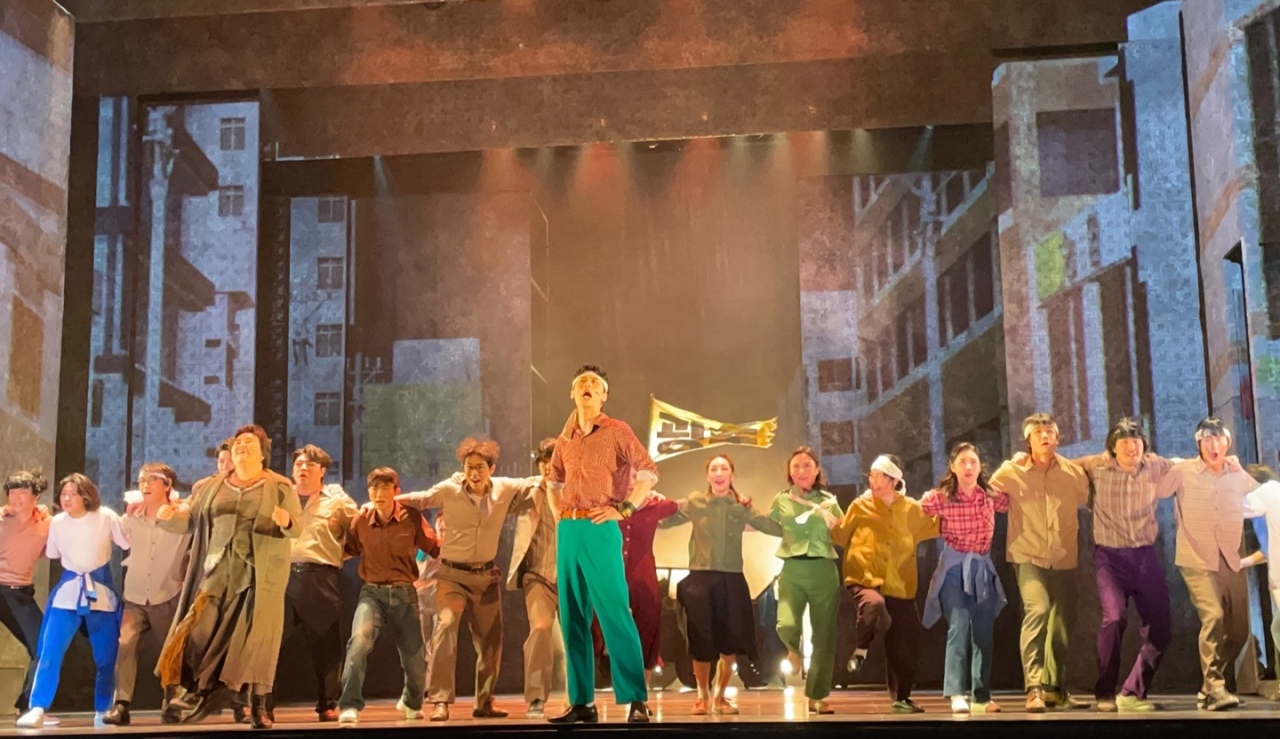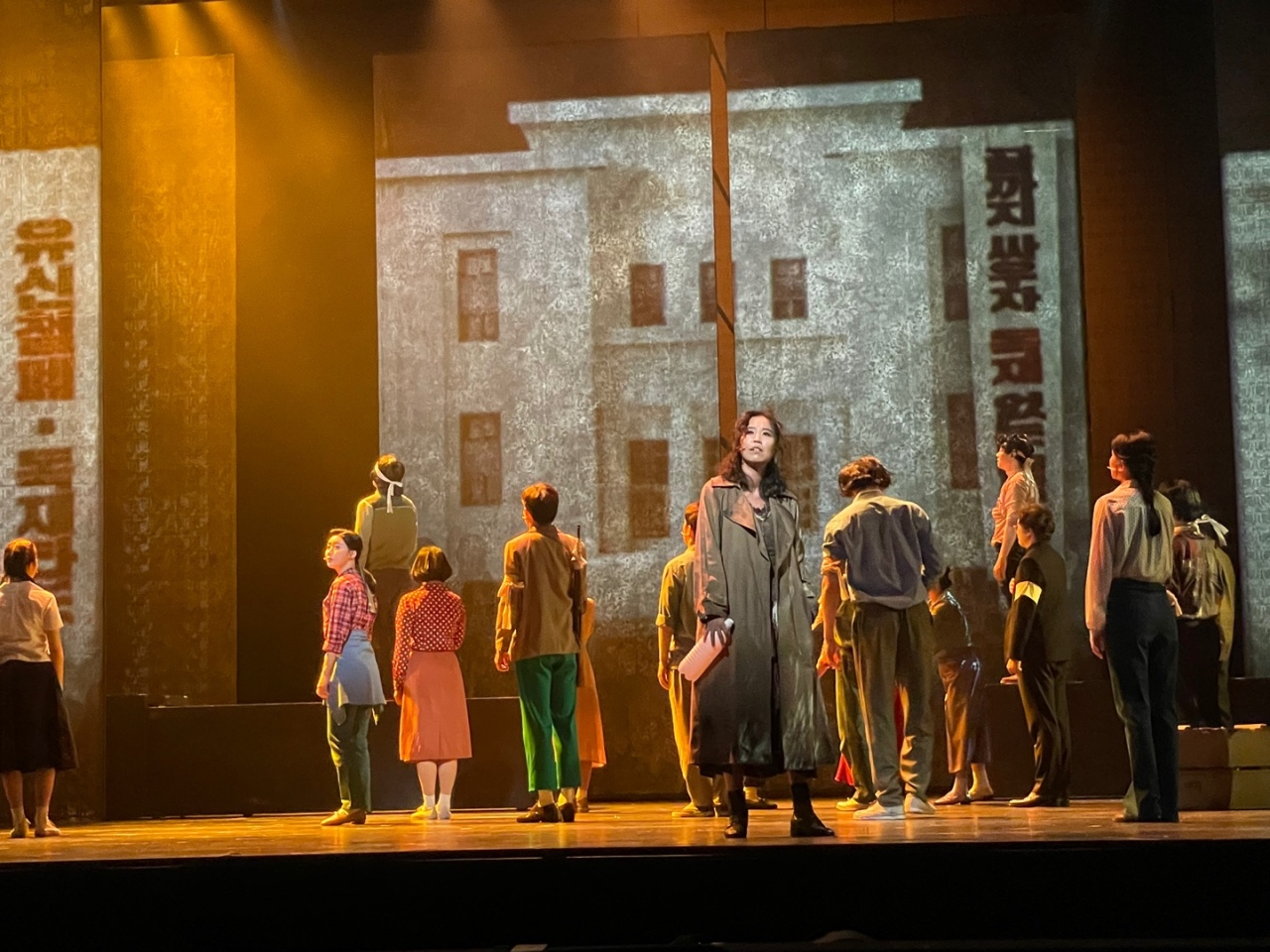With its third revival, ‘City of Light’ eyes global stage
By Park Ga-youngPublished : April 25, 2022 - 17:29

The “City of Light,” known as “Gwangju” in Korean, is back for the third time since it first took the stage in 2020.
This time, the musical aims to reach a global audience to deliver a story of resistance and the democratic movement when it gives a preview on Broadway later this year, the musical’s production team said last week.
“‘City of Light’ was created as part of an initiative to popularize the iconic protest song ‘March for the Beloved’ and with this third revival we have a plan for global expansion,” artistic director Yoo Hee-sang told reporters after a press call Thursday. “We will bring it to Broadway for a showcase in November after a nationwide tour in Korea.”

“March for the Beloved” was written in 1982 for a spirit wedding of Park Gi-soon, a labor rights activist who founded a night school for laborers, and activist Yoon Sang-won, who ran the night school after Park died of carbon monoxide poisoning at the shool in the winter of 1978. Yoon passed away during the 1980 Democratic Uprising that took place in the southwestern city of Gwangju. The song has since come to symbolize Korea’s democratization movement.
“City of Light,” written by Koh Sun-woong, a Gwangju resident who experienced the bloody suppression of civilians by the military, is a retelling of the Gwangju massacre. On May 18, 1980, the South Korean military opened fire on students from Chonnam University in the center of the southern city of Gwangju, following days of peaceful protests against Gen. Chun Doo-hwan’s military dictatorship.
The musical evolves around night class teacher Yun Yi-gun, performed by Jo Hwee, and Lee Ji-hoon who stood a against the military.
“Yun Yi-gun shows how someone was forced to hold a gun, instead of a pen. In this piece, there is no place for a hero who solves all problems. Instead, it’s a story of ordinary citizens and their love, friendship and fate,” Jo said.
In focusing on the historical event, “City of Light” hopes to follow in the footsteps of the runaway success of similar musicals, including “Hamilton” in the US and “Six” in the UK, that indicate an appetite in the West for historically-informed musicals.
Even after six years on Broadway, “Hamilton” is so successful that tickets sell for hundreds of dollars, and the theater operates a daily lottery for a chance to see the show.
Although the Korean production will not use English subtitles, the producer said they’ll adopt a hybrid mix of English and Korean for the Broadway performances.
“I have the experience of bringing ‘The Last Empress’ to Lincoln Center and I’m still thinking how to best present the Gwangju story on Broadway,” Yoo said, adding that he would like to cast Broadway actors instead of bringing the original team. “The Last Empress,” a story about Queen Min who was assasinated by Japanese, is an orignal Korean-language production premiered in 1995.
Now in its third revival, “City of Light” will run through Sunday at Seoul Arts Center. Then they will perform at Bitgoeul Citizen’s Culture Center in Gwangju. The production is sponsored by the Gwangju Cultural Foundation.
(gypark@heraldcorp.com)






![[KH Explains] How should Korea adjust its trade defenses against Chinese EVs?](http://res.heraldm.com/phpwas/restmb_idxmake.php?idx=644&simg=/content/image/2024/04/15/20240415050562_0.jpg&u=20240415144419)












![[Today’s K-pop] Stray Kids to return soon: report](http://res.heraldm.com/phpwas/restmb_idxmake.php?idx=642&simg=/content/image/2024/04/16/20240416050713_0.jpg&u=)